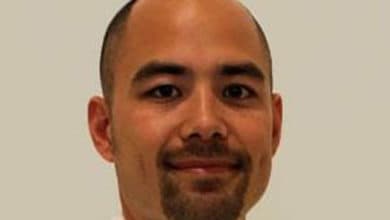Fourth-year med students, it’s time to start thinking about those residency interviews! And if you’re like many of your peers, you have some questions about what the interview process will be like, including whether or not residency interviews will follow the pandemic trend of staying virtual in 2022.
In this blog post, we’ll answer one of the most common questions students have this year: will residency interviews be virtual in 2022? We’ll also give you three tips to help you prepare for your interviews so that you can make the best impression on program directors and selection committees!
So, will residency interviews be virtual in 2022?
The answer is… maybe. While the trend has been for more and more programs to conduct virtual interviews this year due to the pandemic, it’s impossible to say for sure what next year will bring.
That said, it’s always best to be prepared for a virtual interview, just in case. In fact, the AAMC has officially recommended, “Programs should conduct virtual interviews for all applicants (including local applicants) for the 2022-23 cycle.”
Now that we’ve answered the question of whether or not residency interviews will be virtual in 2022, let’s move on to three tips to help you prepare for your interviews…
Tip #1 for Residency Interviews: Prepare for Both Virtual and In-Person Interviews
Whether residency interviews are virtual or in-person in 2022, you’ll want to be prepared for both! That way, you can be sure that you’re ready for whatever format your interviews end up being.
One important aspect of both virtual and in-person formats is appearing professional. Have a professional outfit selected for both scenarios. Make sure that you’ve given yourself enough time to prepare yourself and have the proper attire clean and ready to go on interview day.
To prepare for a virtual interview, start by familiarizing yourself with the video conferencing platform that will be used. Make sure you know how to use all of the features, including how to share your screen. Then, do a test run with a friend or family member so that you can get comfortable with the technology.
Tip #2 for Residency Interviews: Be Ready to Talk about What You Mentioned in Your Personal Statement and Application
No matter what format your residency interviews end up being, you’ll want to be sure that you know your stuff! This means first being familiar with the program you’re interviewing with.
Start by researching the programs you’re interested in and make sure you know their mission statement and key values. You should also familiarize yourself with the faculty and staff in the department so that you can mention them by name during your interview.
Secondly, focus on how you want to pursue this specialty. This is a big part of residency interviews that is not in medical school interviews. Why do you want to be X type of physician? What experiences have you had to prepare you for this specialty? Why do you want to train at this specific program for this specific specialty? Be sure to have answers prepared for these questions that go deeper than a generic response.
Tip #3 for Residency Interviews: Be Yourself
Finally, the most important tip we can give you is to be yourself! Residency interviews are an opportunity for you to show who you are as a person, so don’t try to be someone you’re not. Remember when you were applying to med school a few years ago? Residency program directors and selection committees are not unlike medical school- they want to invite unique candidates who will make distinct contributions not only to their school’s list of achievements, but they are looking to see how you will be as a future colleague. Will you be a good fit for their team? How will you work with others?
The best way to be yourself is to prepare in advance so that you can relax and be present in the moment during your interview. If you have your key points memorized and you’re familiar with the program, you’ll be able to focus on having a conversation with your interviewer instead of worrying about what you’re going to say next.
Get Residency Interview Prep Help
Common Residency Interview Questions & Answers
Now let’s dive into some of the common residency interview questions and answers we’ve heard over the years.
Tell me about yourself
The most ambiguous interview question ever! The mistake many residency applicants make here is assuming they should launch into their med school experiences. But that information is already on your application. If you made it through medical school and aced your boards, you’re clearly qualified to enter a residency training program. You’ve already made the clinical and academic cut, so be mindful that you don’t spend all of the interviews talking about your accolades.
Instead, use this question to introduce yourself as a person rather than a future doctor. Talk about your upbringing, interests, hobbies, and your family. Talk about your hometown, how far you moved for medical school, and where you like to travel.
“Tell me about yourself” is supposed to be a conversation starter that segues into other topics — but it really is a getting-to-know-you-personally question more than anything.
Why did you choose this specialty?
This one is the equivalent to the “why do you want to go to medical school” that you answered four years ago. It’s a biggie.
First, make sure you answer consistently with what you wrote in your residency personal statement. Of course, don’t memorize it and recite it word for word! Recount the experiences and anecdotes that you wrote about and expound on them in a conversational manner. Often there’s an ah-ha moment when you discover your passion for a specific specialty — it’s ok to share this and exhibit some excitement and enjoy a moment of camaraderie with the people you’re talking to!
The goal is to be authentic and personable in your response.
Why are you interested in joining this particular program?
Remember that you’re interviewing the program as much as they’re interviewing you. Don’t feel the need to automatically list all of the favorable attributes the program is known for.
Before your interview, really research the program. Why ARE you genuinely interested in joining it??
Learn About Residency Match Consulting
What are your strengths and weaknesses?
This is another uncomfortable question that can be difficult to navigate.
For strengths, think of some things that you genuinely do well and use examples from your application or CV to support them. Expound on the experiences you listed and why your skills and traits make you well-equipped to handle those situations. For a weakness, think of something you have struggled with and share how you have worked to improve or overcome it. Maybe you have always had a “if you want something done right, you have to do it yourself” mentality, but certain team experiences during rotations changed your perspective and you’ve devised ways to effectively delegate.
Tell me about a time you struggled to work with a colleague — are there certain traits you dislike in coworkers?
Resist the urge to go off on a tangent about lazy, arrogant, or aloof people you’ve had to work with in the past. The purpose of this question is not actually about things you dislike, but how you manage to handle them with patience, grace, and professionalism.
As a physician, you don’t get to choose your patients or your colleagues (unless you eventually start your own practice). You will have to work with the full spectrum of personalities and dispositions, and you will no doubt encounter some unpleasantries on a daily basis. The interviewer wants to know that you can be professional in any situation.
Other questions to expect
You can also expect the interviewers to ask some common questions, such as:
- Tell us about your research. This is the time to talk about your med school experience, but be sure to add something more to the conversation that the interviewer couldn’t just read on your CV or application.
- Where do you see yourself in 5-10 years? This is a great opportunity to talk about your vision for your future in medicine, and it’s also ok (encouraged even!) to talk about your personal aspirations if you’re comfortable doing so.
- What is the most pressing health issue today? You’re not expected to cure cancer or right inequalities in healthcare tomorrow, but this question shows that your passion for medicine extends beyond a facility’s front doors.
- Scenario-based questions. Don’t be surprised if the interviewer poses a scenario and asks how you’d handle it. It could be a difficult patient, a clinical procedure, or a conflict between two coworkers. Just pause, gather your thoughts, and answer honestly about how you would handle it.
|| Read about Medical Residency Match. ||
Get Ready for Residency with Interview Preparation from MedSchoolCoach
Approach Match Day confidently with help from the physician advisors at MedSchoolCoach. Our consulting services don’t stop when you get into medical school – we offer complete residency match services to help you create a strong ERAS application and write a standout residency personal statement. We also offer realistic mock interview sessions with real physicians that have served on admissions committees and have conducted actual residency interviews. They will prepare you for residency interviews with real-time feedback and tips to nail your actual interview. Schedule a free consultation for residency match consulting today.



